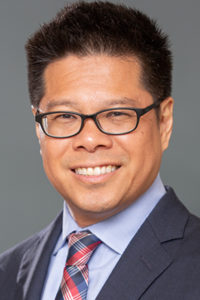
Telemedicine has made it easier and more convenient for patients with sleep and neuromuscular disorders. It’s an important strategy for managing patients, and physicians need to adapt to this type of care, said Won Lee, MD, FCCP, an associate professor in the department of internal medicine at UT Southwestern Medical Center. Session chair Dr. Lee provided a glimpse of what he and his co-presenters will address during the session Advances in Telemedicine: Optimizing Health Care for Sleep Medicine and Neuromuscular Disorders, on Tuesday at 5:00 pm in room 294 of the convention center, in this Daily News Q&A.
How is telemedicine a strategic and important role
in taking care of patients with sleep and neuromuscular disorders?
→ Telemedicine is a strategy to provide expertise to a wider network of patients. With access to technology, both patients and clinicians are now able to provide exceptional medical care without physically being present with each other. For sleep medicine, this is important because of the large volume of patients with sleep disorders relative to limited numbers of sleep medicine trained providers. For patients with neuromuscular disorders, telemedicine provides incredible access to clinicians with expertise to patients who live afar and have limited mobility. Both models have far reaching potential for other chronic disease conditions.
What are some of the applications?
→ Chitra Lal, MBBS, FCCP, from the Medical University of South Carolina, will give a comprehensive overview of the use of telemedicine in management of sleep apnea and insomnia. She’ll review recent literature supporting its strategic use.
Barry Fields, MD, from Emory University, will give an overview of the VA experience with telemedicine also in sleep medicine. He’s a leader in the field and has great insight and will share favorable research outcomes.
What are some of the recent updates in telemedicine from guidelines, billing, and legal
perspectives?
→ This will be covered by Jeanette Brown, MD, PhD, from the University of Utah. There are national standards, but state and regional standards apply—as does insurance billing issues. Interstate medical licensure, HIPPA compliant software, specific state requirements for prescriptions, malpractice insurance, and heterogeneity in reimbursement are all relevant perspectives that will be highlighted in Dr. Brown’s lecture.
How is telemedicine better for patients managing their conditions?
→ Convenience and access is key. Julie Hanley, MSN, GNP-C, from the University of Michigan, will be reviewing the use of telemedicine for neuromuscular patients. Many patients have limited mobility due to their chronic conditions and struggle with travel to their assisted ventilation clinic—some coming from 440 miles away. In their model, telemedicine allows for triaging and treating patients remotely, thereby reducing unnecessary trips to the hospital and decreasing complex travel arrangements to clinic. Patients and caregivers are satisfied with the quality of care in this creative approach.
What points do you want attendees to come away with and why?
→ Telemedicine is here to stay and importantly is “patient-centric.” We need to leverage technology. If my 6½-year-old daughter can master mathematics skills using technology, the medical field can certainly adapt to innovative methods of caring for patients.





